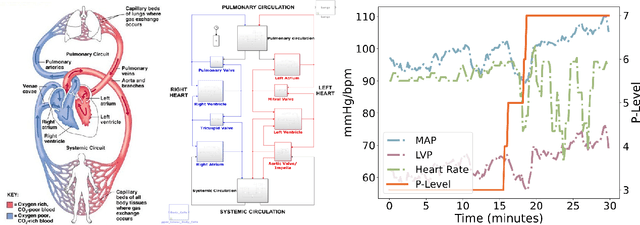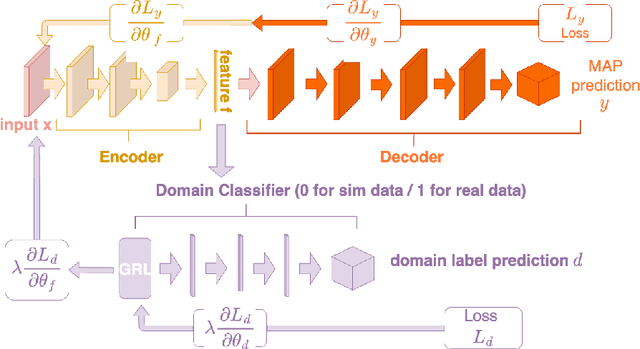Data-Driven Simulator for Mechanical Circulatory Support with Domain Adversarial Neural Process
Paper and Code
May 28, 2024



Mechanical Circulatory Support (MCS) devices, implemented as a probabilistic deep sequence model. Existing mechanical simulators for MCS rely on oversimplifying assumptions and are insensitive to patient-specific behavior, limiting their applicability to real-world treatment scenarios. To address these shortcomings, our model Domain Adversarial Neural Process (DANP) employs a neural process architecture, allowing it to capture the probabilistic relationship between MCS pump levels and aortic pressure measurements with uncertainty. We use domain adversarial training to combine simulation data with real-world observations, resulting in a more realistic and diverse representation of potential outcomes. Empirical results with an improvement of 19% in non-stationary trend prediction establish DANP as an effective tool for clinicians to understand and make informed decisions regarding MCS patient treatment.
 Add to Chrome
Add to Chrome Add to Firefox
Add to Firefox Add to Edge
Add to Edge